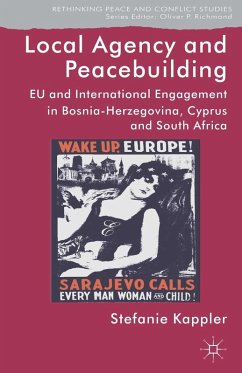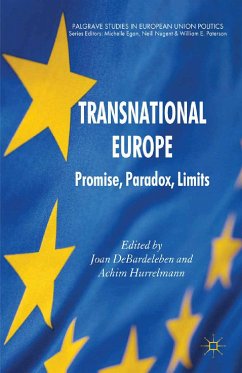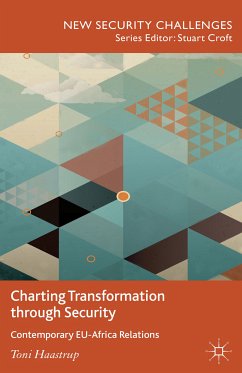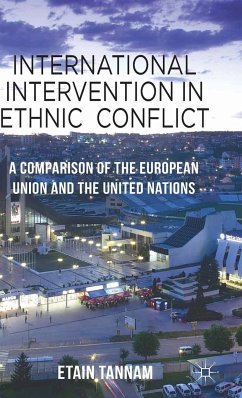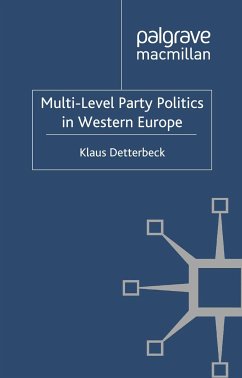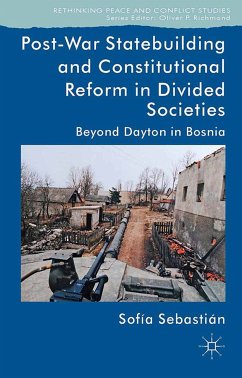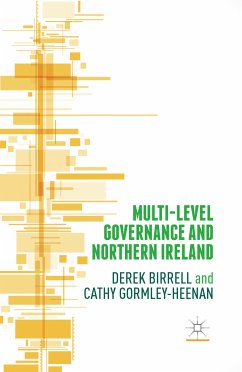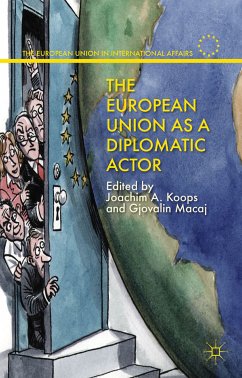Dieser Download kann aus rechtlichen Gründen nur mit Rechnungsadresse in A, B, BG, CY, CZ, D, DK, EW, E, FIN, F, GR, HR, H, IRL, I, LT, L, LR, M, NL, PL, P, R, S, SLO, SK ausgeliefert werden.
"It is hard to imagine a more timely and sophisticated contribution to the peacebuilding literature than Stefanie Kappler's excellent analysis of local actors' experiences of peacebuilding in Bosnia, Cyprus and South Africa. This theoretically advanced and empirically insightful book offersa critical investigation into the complex interactions between actors and discursive spaces of peacebuilding while contributing to rethinking agency and power. Thus, it sheds light on the broad question of peacebuilding legitimacy, while gradually modifying how we understand peace on the ground." - Annika Björkdahl, Lund University, Sweden

